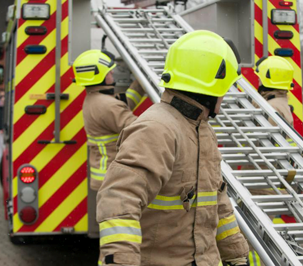Some fire engines could be kept for as long as 20 years before being replaced, according to chief fire officer Dawn Whittaker.
The oldest fire appliances are currently replaced after 15 years but funding pressures have prompted fire services bosses to reassess the lifespan of costly equipment.
Trying to keep fire engines running for longer comes with its own challenges for the fire chief and her colleagues as they balance repairs and maintenance costs with replacement costs.
Ms Whittaker said that East Sussex Fire and Rescue Service, which provides cover for Brighton and Hove, would take wear and tear into account.
The fire service typically replaces three fire engines a year, with the newest appliances usually based at the busiest fire stations.
The new approach, the fire chief said, is partly because the government no longer provided capital grants to fire services, having stopped doing so in 2014.
Instead, East Sussex Fire Authority has had to use the revenue grant provided by the government along with council tax receipts and any capital receipts to fund capital spending.
Capital spending typically involves expensive items such as new fire engines and other vehicles, land and property purchases or, for example, the £440,000 fuel tanks programme.
Preston Circus is expected to have a new 10,000-litre fuel tank as part of the programme – as well as a £3 million revamp of the whole fire station.
Roedean fire station, in Brighton, and Hove are both expected to have new 5,000-litre fuel tanks which, like the bigger set up at Preston Circus, will be above ground.
The fire authority has budgeted almost £25 million for a five-year capital programme although it will rely on almost £10 million of borrowing to cover all the costs.
Ms Whittaker told a Wealden District Council “overview and scrutiny” meeting: “We’ve kind of sold all our family jewels and family silver (already), the most significant one being the sale of our Eastbourne headquarters which generated £4 million into our capital programme, but that pot is running dry.
“We must be able to maintain our fire appliances. One of the things I am having to do is extend the life of some of our appliances but of course we will do that in a risk-based way.
“It will be based on the wear and tear … but we are going to move, in some instances, from a 15-year life to a 20-year life for some of our larger appliances.”
The fire authority is due to finalise its budget at a meeting is due to take place on Thursday 11 February.









